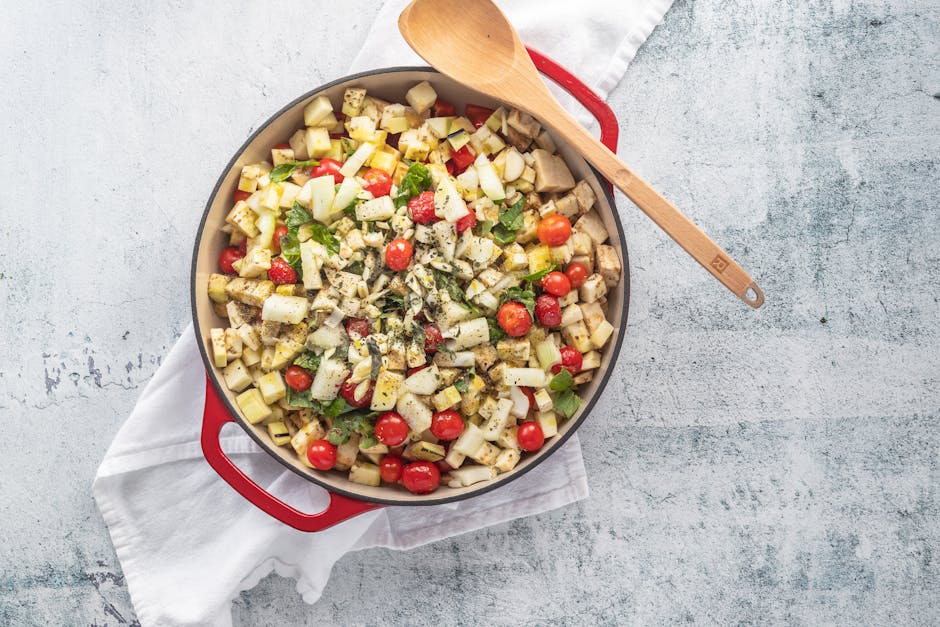Foods for Heart Health: Mediterranean Diet Insights
Welcome to a journey through the vibrant and heart-healthy world of the Mediterranean diet. If you’re aiming to boost your heart health while savoring delicious meals, you’re in the right place! Let’s explore how this diet not only tantalizes your taste buds but also keeps your heart ticking happily. 🫒❤️
Table of Contents
1. Introduction
2. What is the Mediterranean Diet?
3. Key Foods for Heart Health
4. Benefits of the Mediterranean Diet
5. Conclusion
6. FAQs
What is the Mediterranean Diet?
The Mediterranean diet is more than just a way of eating; it’s a lifestyle inspired by the traditional dietary patterns of countries bordering the Mediterranean Sea. Think vibrant vegetables, fresh fruits, hearty beans, whole grains, and healthy fats. It’s a diet that emphasizes balance, moderation, and variety, all while indulging in the joys of food. 🌿🍅
Key Foods for Heart Health
1. Olive Oil: Liquid Gold 🫒
Olive oil, often referred to as ‘liquid gold,’ is a staple in the Mediterranean diet. Rich in monounsaturated fats, it helps reduce bad cholesterol levels and is packed with antioxidants. Drizzle it over salads or use it for cooking to keep your heart healthy.
2. Fruits and Vegetables: Nature’s Candy 🍇🥦
Fruits and vegetables are at the heart of this diet. They are loaded with vitamins, minerals, and antioxidants. Incorporate a rainbow of produce into your meals to ensure you’re getting a wide range of nutrients.
3. Nuts and Seeds: Crunchy Goodness 🥜
Almonds, walnuts, and flaxseeds are fantastic sources of healthy fats and protein. Snacking on a handful of nuts or adding seeds to your smoothies can help keep your heart in tip-top shape.
4. Fish: Ocean’s Bounty 🐟
The Mediterranean diet encourages eating fish, especially fatty fish like salmon and mackerel, at least twice a week. Rich in omega-3 fatty acids, fish supports heart health and reduces inflammation.
5. Whole Grains: Fiber-Rich Choices 🌾
Whole grains like quinoa, brown rice, and whole-wheat pasta are preferred over refined grains. They provide fiber, which helps maintain healthy cholesterol levels and promotes good digestion.
Benefits of the Mediterranean Diet
The Mediterranean diet is renowned for its heart-health benefits. It has been linked to reducing the risk of heart disease, lowering bad cholesterol levels, and improving overall cardiovascular health. Plus, it’s a diet that promotes longevity and a lower incidence of chronic diseases. 🌟
Conclusion
Adopting the Mediterranean diet is not just about food; it’s about embracing a lifestyle that prioritizes health and well-being. By incorporating these heart-healthy foods into your daily routine, you can enjoy delicious meals while caring for your heart. So, why not start today and give your heart the love it deserves? ❤️
FAQs
1. Can I follow the Mediterranean diet if I’m vegetarian?
Absolutely! The Mediterranean diet is very flexible and can be adapted to vegetarian preferences by focusing on plant-based proteins and a variety of vegetables and grains.
2. Is olive oil fattening?
While olive oil is high in calories, it’s a healthy fat. Used in moderation, it can be part of a balanced diet without contributing to weight gain.
3. How often should I eat fish on the Mediterranean diet?
Aim for at least two servings of fish per week, focusing on fatty fish like salmon for the best heart-health benefits.
4. Are there any specific foods to avoid in the Mediterranean diet?
Try to limit processed foods, refined sugars, and red meats. The focus should be on whole, natural foods.
5. Can I enjoy desserts on this diet?
Yes, but in moderation! Opt for fruit-based desserts or small portions of treats like dark chocolate to satisfy your sweet tooth.



